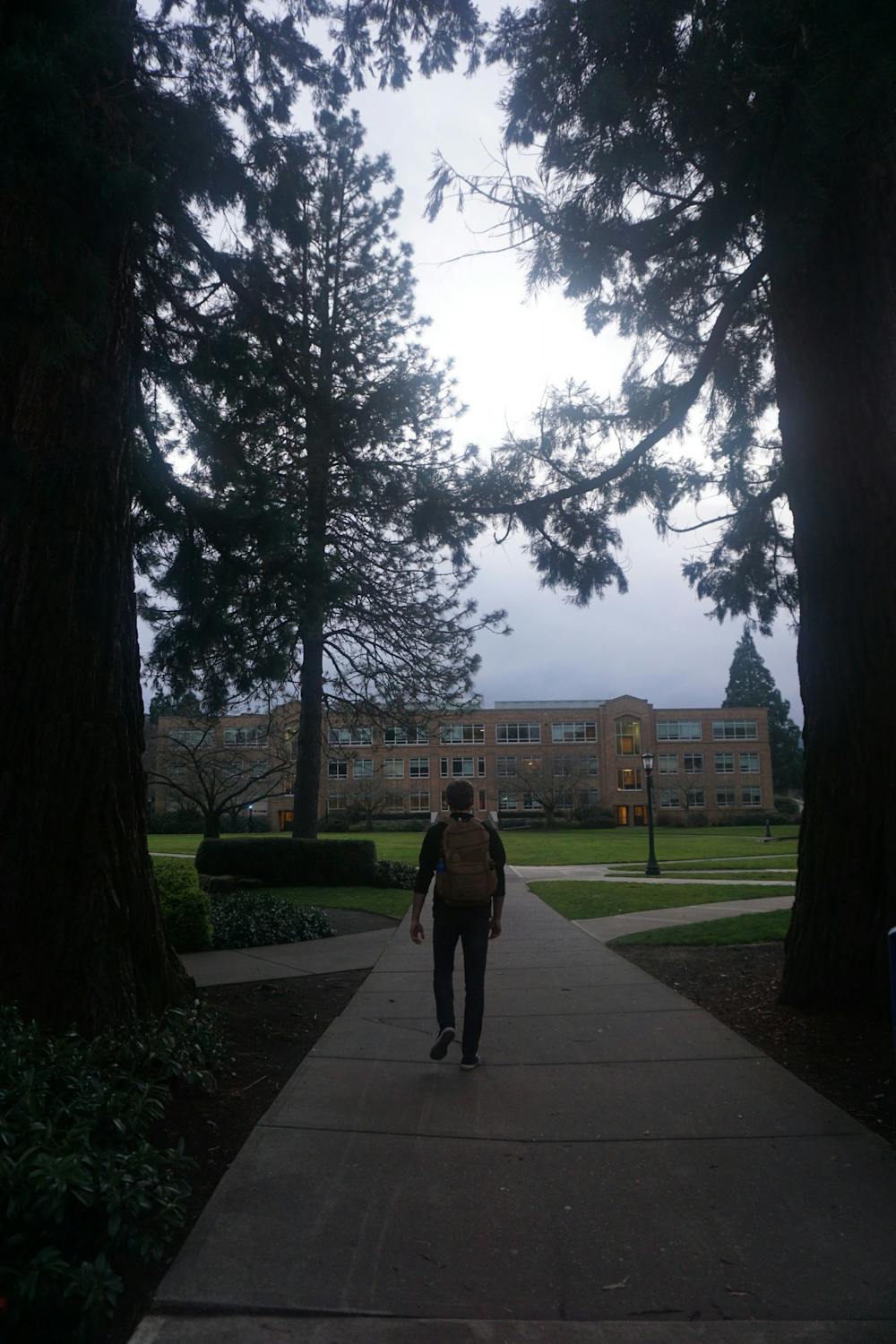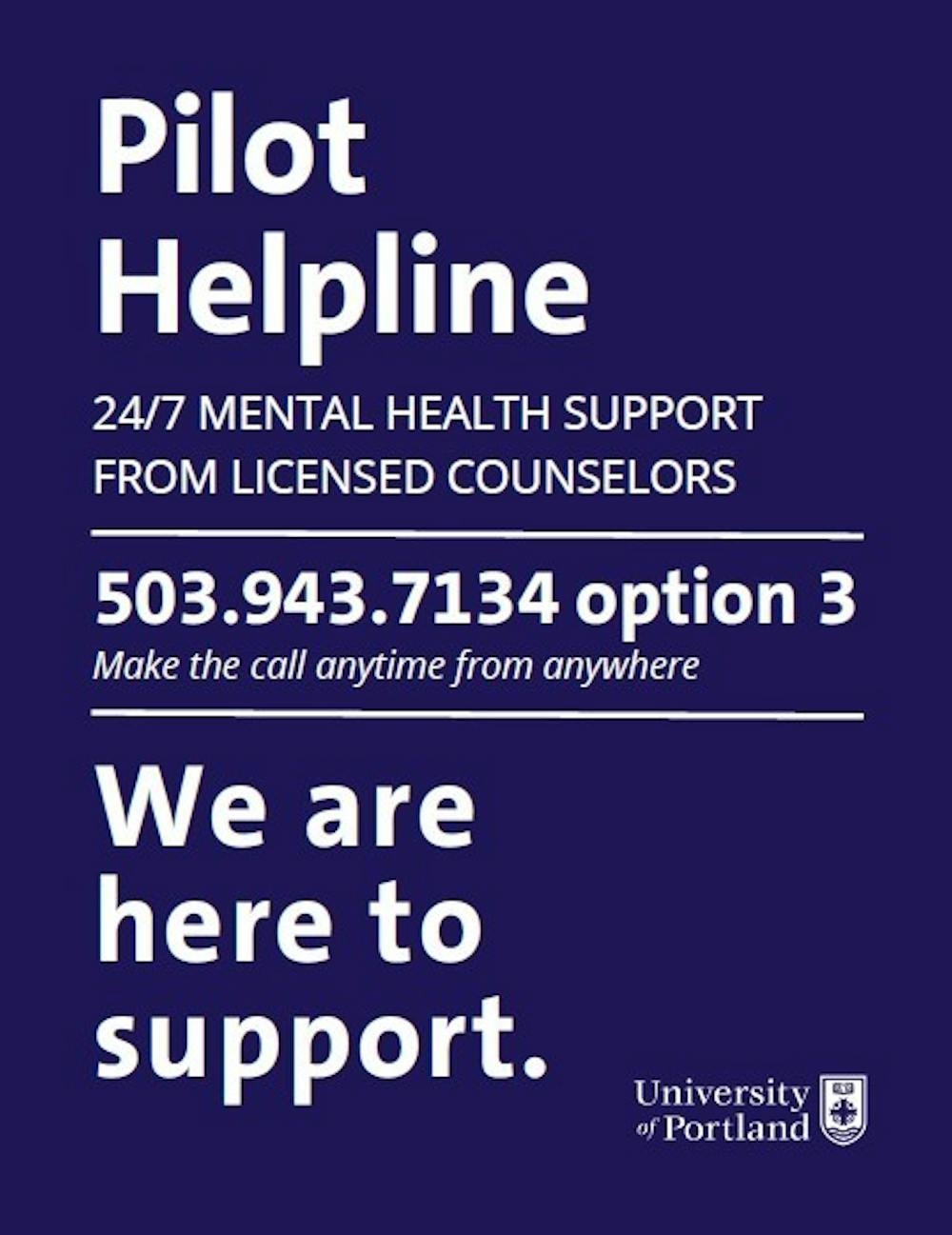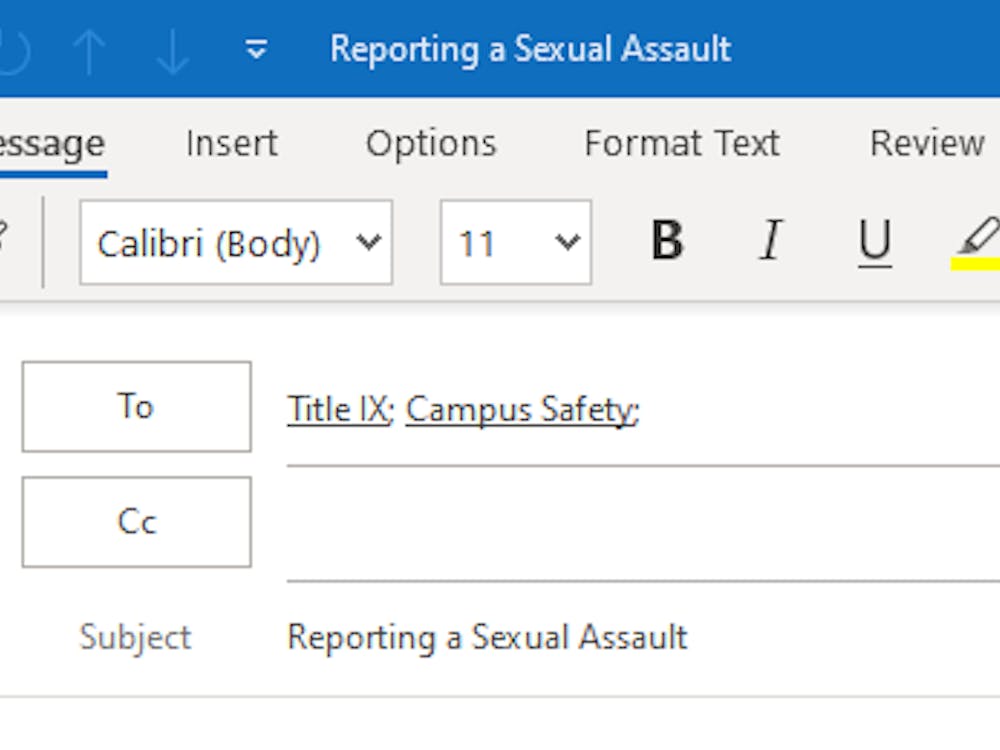Between the endless homework and stress of planning every aspect of your future, paired with feelings of displacement from loved ones, college has always been a time where young adults can face an onset of mental health struggles.
Now add in a global pandemic, loss of social connection and the effects of extreme loneliness and grief, and it can push just about anyone to their breaking point — resulting in the college mental health crisis that we are now facing.
“College students have always experienced anxiety and depression and stress and loneliness, but COVID has taken that up a notch,” UP psychology professor Andrew Downs said. “It's totally normal for college to be a hard time, but this has just increased the stress to a level that's unprecedented in our lifetime.”

Lone student walks into the Health and Counseling Center. Request for HCC services have gone up significantly since the onset of COVID-19.
Photo illustration by Marek Corsello
According to an Instagram poll conducted by The Beacon in January, 94% of UP students reported an increase in mental health struggles since the outbreak of COVID-19.
“Colleges are emphasizing physical health and all the guidelines to protect the community from COVID and the physical ramifications of COVID have come at a significant cost of mental health,” Downs said.
Inevitably, while experiencing the effects of COVID-19 and following safety guidelines, students are forced to experience increased levels of isolation, stress and trauma.
“The biggest factor is isolation,” Clay Hartmann, acting co-director of the Health and Counseling Center (HCC) said. “It is rare that a mental health condition or personal struggle is helped in any way by isolation or seclusion. A lot of our work in counseling is helping people to break out of self-imposed and habitual emotional isolation. The pandemic and the associated quarantine, caused people who were opening up, to close back up. Some of those who were already closed, closed off even more.”

Since the onset of COVID-19, the requests for services at the HCC — especially long-term and intensive therapy — have gone up significantly, resulting in long wait times and lack of availability for students requiring care.
“I think all the counselors mean really well and are really great people, but I also think it's incredibly understaffed,” Kaylee Menefee, president of Active Minds, said. “Because wait times for when you go in to do a consultation takes weeks sometimes and that's just not an attainable waiting time for people that are struggling.”
However, this problem isn’t unique to UP. There has been an increase in mental health struggles across the nation since the pandemic started. College students in particular have been facing the brunt of these effects, while institutions don't have enough staffing and resources to provide the mental health care necessary .
“Regardless of what happens with the physical public health aspects of the coronavirus outbreak, we imagine that the increased need and stress on mental health services will continue,” Hartmann said. “In order to address what we are estimating to be an ongoing need, we are in the process of increasing the amount of HCC therapists for the 2022-23 school year.”

UP Pilot Helpline number.
Graphic courtesy up.edu/healthcenter.
The hope is that this, paired with increasing the utilization of the Pilot Help Line (formally called Protocall), and a new service called “Together-all” — an online peer to peer support network that is supervised by licensed mental health clinicians — will mean more students are able to receive treatment on campus for longer periods of time.
“It is the time where it's the make or break time for mental health. If you're able to get support, then that can be life changing,” Menefee said. “The rest of your life is bound to be better, you're bound to find support if you're able to get support at this level in your life. But if you're not, you're more likely to not get support for the rest of your life and more likely to not be able to be vulnerable.”
Haviland Stewart is the Living Section Editor at The Beacon. She can be reached at stewarth22@up.edu.








